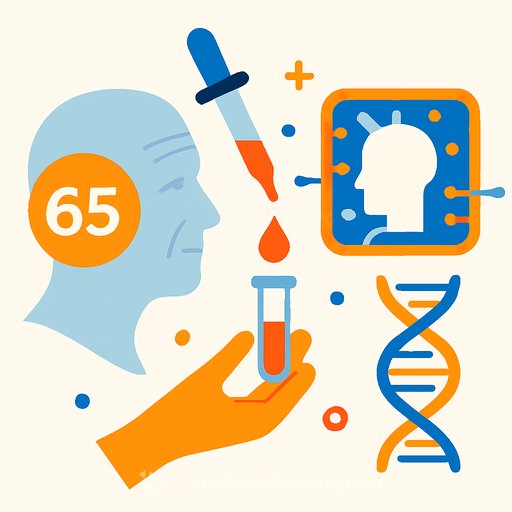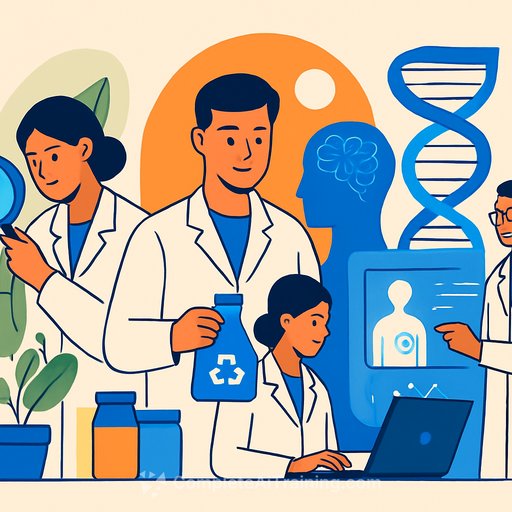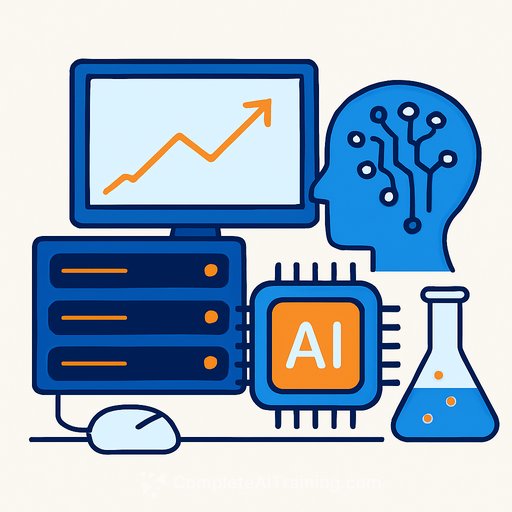AI Predicts Biological Age from a Small DNA Sample with High Accuracy
Researchers at the Hebrew University of Jerusalem have developed an AI-based method that predicts an individual's age using only a small blood sample. Unlike traditional age estimation techniques that rely on external traits or medical history, this approach analyzes specific DNA markers to deliver highly accurate results, unaffected by factors like sex, weight, or smoking habits.
How DNA Methylation Reflects Aging
Our DNA accumulates chemical tags called methyl groups (CH₃) as we age, a process known as DNA methylation. These tags do not alter the genetic sequence but influence gene activity. Over time, the pattern and quantity of methylation serve as biological timestamps, providing a molecular record of aging.
The innovation lies in focusing on just two small regions in the genome rather than a broad scan. The AI tool, named MAgeNet, employs deep learning to analyze methylation at the single-molecule level, functioning like a precise molecular clock. This focus enhances accuracy and efficiency. Professor Kaplan explains that these methylation marks represent measurable signs of time passing, which their model interprets with exceptional precision.
Validation Through Long-Term Data
The research, published in Cell Reports, involved blood samples from over 300 healthy participants. The team also utilized longitudinal data from the Jerusalem Perinatal Study, which tracks health metrics over decades. This extensive dataset confirmed MAgeNet’s reliability for both short- and long-term age prediction.
Importantly, the model maintained accuracy regardless of variables like sex, body mass index, or smoking history—common confounders in other biological age assessments. This consistency suggests broad applicability in clinical and research environments.
Applications in Medicine and Forensics
In clinical practice, accurately estimating biological age can improve diagnosis and treatment, particularly when physiological signs don’t align with chronological age. Personalized medicine could benefit from this insight, tailoring interventions based on cellular aging rather than calendar years.
For forensic science, MAgeNet offers a new tool for age estimation from minimal DNA evidence left at crime scenes. Current DNA profiling identifies individuals but cannot reliably determine age. This method provides a valuable addition to forensic investigations by estimating the age of a suspect or victim from trace biological material.
Professor Dor highlights that this approach provides a fresh perspective on cellular aging, illustrating the potential of combining biology with artificial intelligence.
Insights into the Dynamics of Cellular Aging
The researchers observed that DNA methylation changes do not occur uniformly over time. Some modifications happen abruptly, while others progress steadily, resembling ticking clocks within cells. These findings may explain why people age differently despite sharing the same chronological age.
According to Professor Shemer, the focus extends beyond simply determining age—it involves decoding how cells internally track time at the molecular level. This understanding could influence longevity research and the development of therapies aimed at slowing cellular aging.
Significance for the Future of Aging Research
This DNA-based age prediction method marks an important advancement in assessing biological age with precision. It provides a measurable indicator of healthspan and aging beyond the traditional birthdate count. The tool’s potential spans healthcare, forensic science, and longevity studies, offering a practical resource for tracking aging processes and possibly guiding interventions.
As populations age globally, methods like MAgeNet may become essential for evaluating health risks and monitoring the effectiveness of anti-aging treatments. This approach transforms age from a mere number into a quantifiable molecular signature.
For professionals interested in AI applications in biology and medicine, exploring resources on advanced AI tools and courses can enhance understanding of such innovative techniques. For example, Complete AI Training's latest AI courses offer practical insights into machine learning applications in life sciences.
Your membership also unlocks:





